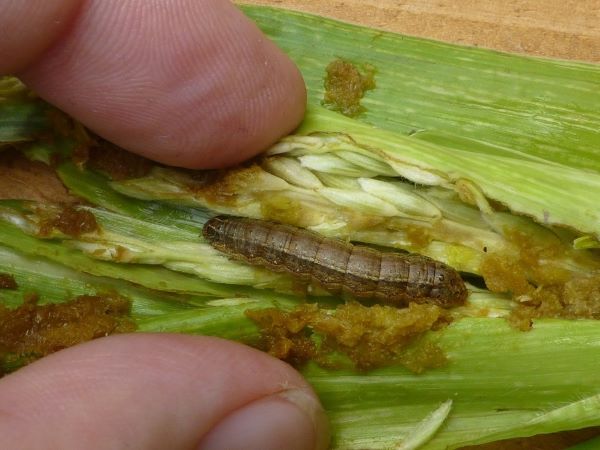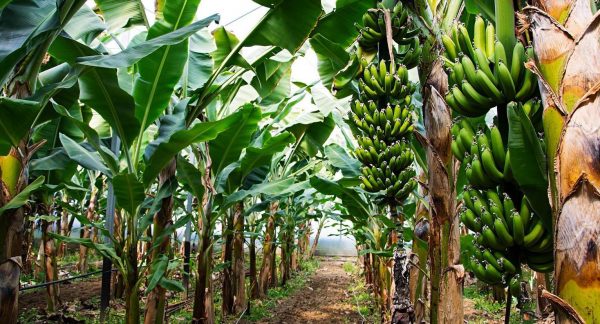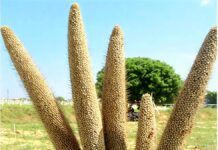
A new study by the Centre for Agriculture and Bioscience International (CABI) published late last month in the CABI Agriculture and Bioscience journal has shown that strengthening the plant health system has the potential to contribute to reducing crop losses caused by climate change-induced invasive pests in South Sudan.
According to the study, climate change phenomenon has led to the introduction of new pests and diseases affecting crops such as elegant grasshoppers (Zonocerus sp.), bollworms, cassava whiteflies, cutworms, African armyworms, stalk borers, and aphids among others.
The fall armyworm (FAW), for instance, is a relatively new pest in South Sudan and Africa and one of the invasive pests in the country associated with climate change, cites a 2017 Food and Agriculture Organization (FAO) report.
In fact, the country is among the world’s climate change hotspots, with increasing frequency of extreme climatic events that impact plant health. A significant concern is the increasing emergence and incidence of crop pests that threaten the plant health and livelihoods of approximately 86% of rural households in South Sudan, which depend on agriculture indicates a 2023 UN Environmental Programme (UNEP) report.
Despite the condition, a situational analysis conducted among 960 farmers in Juba, Yambio, and Yei indicated low access to plant health services, including advisory and extension, training, and information.
As a result, the farmers have been depending on NGOs and UN agencies to provide plant health services, indicating a gap in government-led initiatives.
Effect of pests and diseases
The fall armyworm (FAW) which is a relatively new pest in South Sudan besides affecting maize, a predominant staple food crop in the youngest African nation, FAW also damages sorghum, millet, vegetables, and other crops.
Indeed, FAW is reported in various regions of South Sudan, including Equatoria, Northern Bahr el Gazal, and parts of Jonglei.
According to a 2022 World Bank report, notable plant diseases are cassava mosaic virus, pearl millet downy, Mildew rust that attacks maize and sorghum, and the late blight that affects tomatoes
While data on yield losses from adverse effects of climate change in South Sudan are scarce, 87% of the total population in the country suffers from moderate to severe food insecurity mainly caused by the overlapping effects of climate-induced shocks such as insect pests, diseases, floods, and drought, indicates the study.
For example, a 2021 CABI report show that papaya mealybug, a new crop pest in South Sudan, causes up to 91% yield losses of papaya, severely affecting the livelihoods of smallholder farmers in the country.
Cassava brown streak disease (CBSD) and the increasing prevalence of cassava mosaic disease (CMD) is said to be having a sizeable economic impact.
Available data from East and Central Africa that encompasses South Sudan indicate that CBSD and CMD cause up to 70% and between 77 and 97% yield losses estimated at US$100 million and US$1.9–2.7 billion dollars per year respectively.
Plant health system challenges
South Sudan’s plant health system (PHS) has been described as having weak institutional and regulatory capacity and complicated by the limited availability of quality and clean planting materials thus depends on imported seeds and services.
This happens at a time PHS has evolved from the early traditional knowledge and chemical based plant health management practices in the twentieth century, to plant clinics and expansion of extension services that provide information on implementation of best practices in plant health management in the late twentieth century, and integrated pest management, diagnostic tools and information technology in twenty-first century.
The study thus recommends PHS which provides a system thinking to plant health delivery and designing strategic interventions that will effectively address the inherent plant health challenges in the country.
Additionally, there are opportunities in the farmer advisory, plant health information, and agricultural training in enhancing farmers’ knowledge and uptake of integrated pest management practices, as well as surveillance and monitoring plant health issues, ultimately contributing to the overall improvement of agricultural productivity and sustainability in South Sudan.







